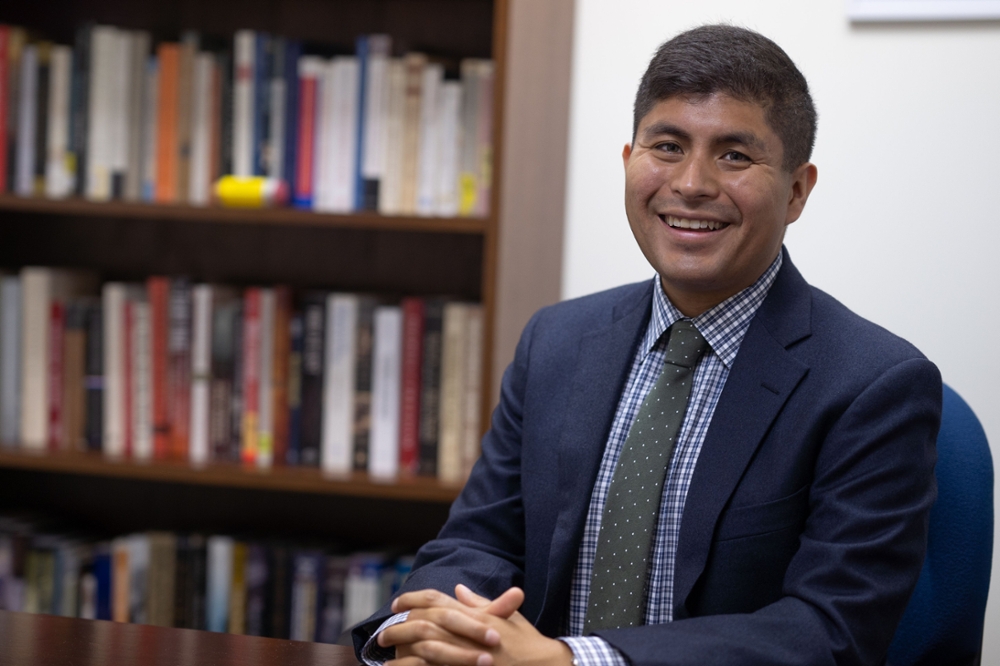Faculty Expert Q&A: Daniel Morales
A conversation with Daniel Morales
JMU Headlines
Morales emphasizes the importance of critical thinking and seeking deep understanding of difficult sociopolitical issues in our time when teaching issues of migration, race and ethnicity, politics and nation. He researches the unique social and economic history of migration between Latin America and the United States—seeking to highlight the experiences of individuals starkly underrepresented in the American curriculum.
His upcoming book, The Making of Mexican America: The Dynamics of Transnational Migration 1900-1940, examines the creation of transnational migratory networks across Mexico and the United States in the twentieth century.
A: What do you enjoy about teaching or working in higher education?
Q: I enjoy teaching important issues to students, the study of the past is critical to understanding human society today. I also enjoy the freedom that academia offers to do research on topics that I care about, the ability to think about questions for a long time and be part of a community that is trying to solve the “Big Questions.”
A: How did you become interested in Latino History, Immigration History, and Borderlands History?
Q: My involvement with immigration came directly out of my work in activism in Chicago. In 2006 I was a college student when Congress tried to pass HR4437, perhaps the most anti-immigrant legislation proposed in generations. I took part in the protests that took off around the country, from LA to Chicago to New York in support of immigrants. Those marches were the largest in American history up to that time. I then went to work for Barack Obama’s presidential campaign in Chicago before going to graduate school.
A: Your research is a common topic of public discussion. What is the most exciting development in your area today?
Q: Scholarship on Latin America has long been international in nature, but up till recently the study of immigration and Latinos has not. Scholars are now challenging the notion that people’s lives start or end at national borders, looking for ways that incorporate many places and countries into a single transnational narrative.
A: What are some challenges you can foresee in your research in the coming year?
Q: Teaching and research are always in some sort of tension. I have been able to do some student research with Immigrant Harrisonburg, that remains quite distinct from my own work and the book I am trying to finish. It’s mostly a battle to find the time to do the work.
A: If you could tell the public one thing about your area of expertise, what would it be?
Q: There is a tendency to think people just arrive, that everyone just naturally wants to live in the US. That is not true most of the time. People want to stay home if they can. Americans remain woefully unaware of the extent to which immigration is a direct result of interventions around the world. From Latin America to East Asia, the largest migration streams have resulted from projections of political and economic power.
A: What are your interests outside of your work at JMU?
Q: I am heavily involved with Sin Barreras—an immigrant rights organization that provides legal, mentoring, and other services to immigrants in the Charlottesville area.
